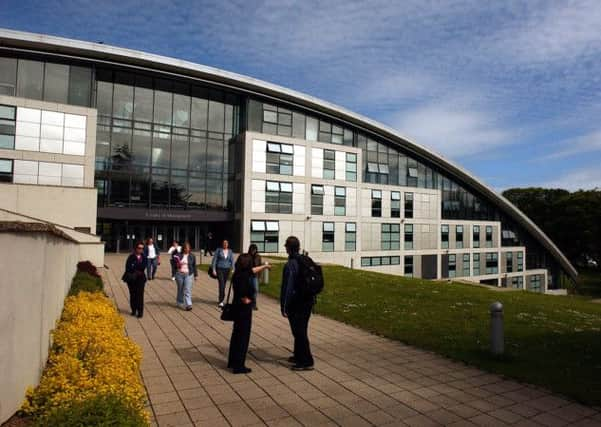Health awareness offers a lesson in life


Currently non-communicable diseases are the leading causes of demise and disease worldwide, accounting for more than 36 million deaths globally each year.
This dramatic increase in non-infectious and non-transmissible diseases is a direct result from the rise in alcohol and drug dependency, obesity and a lack of physical exercise, which are all contributing factors to this ticking time bomb.
Advertisement
Hide AdAdvertisement
Hide AdAccording to the Higher Education Statistics Agency there are more than two million students studying in UK universities at undergraduate and postgraduate level supported by, in excess of, 370,000 staff.
Education Scotland believes that giving the school community positive experiences will ultimately promote and protect long-term health.
Similarly, universities have a unique opportunity to influence young people as they take their first steps towards independence, which can often be a time of unhealthy excesses, particularly with the current binge drinking culture.
We also have an opportunity to positively influence the workplace by encouraging staff to look after their health and wellbeing.
One of the core aims of the “Healthy Universities” network, which Scottish institutions subscribed to in 2013, is to create healthy and sustainable learning, working and living environments for students and staff.
RGU formally became a “healthy university” with the launch of our Fit for the Future initiative in April 2013, which was a first for a university in Scotland.
The initiative, which is a programme designed to promote a co-ordinated approach to health and wellbeing across the institution, was the culmination of six years of hard work and involved a committee which included staff and students – an important factor for embedding the initiative within the culture of the entire university.
Unlike many other healthy university initiatives, RGU took the opportunity to make developments across the campus focussing initially on staff health and wellbeing.
Advertisement
Hide AdAdvertisement
Hide AdBefore making recommendations on strategies to increase physical activity and wellbeing amongst RGU staff, it was important to explore current physical activity and wellbeing levels along with perceptions of barriers and motivators for increasing activity.
This was achieved through an electronic survey and the findings demonstrated that staff whose physical activity levels were low reported low mental wellbeing scores.
Further research allowed the team to explore in more depth the perceived barriers and motivators.
As a result, a range of staff-only interventions targeting physical activity and mental wellbeing have been introduced and are being further developed as Fit for the Future moves into its second year.
A similar electronic survey was distributed to students in April and the results will inform new student initiatives which will be developed for the start of the new academic year.
One year on, much has been achieved with highlights including the development of a monthly healthy university online magazine which offers easy tips to a healthier you, including exercise of the month and advice from the experts.
We have also introduced a series of pop-up dance workshops across campus, campus walks, mindfulness sessions, sun-awareness sessions, smoking cessation workshops, Ready Steady Cook events, Get Crafty lunchtime sessions and healthy eating is encouraged by campus catering outlets, with the aim of providing something for everyone.
University communities provide a unique opportunity to engage staff, students and the wider community in health improving behaviours, however it would be naïve to think that this is an easy task.
Advertisement
Hide AdAdvertisement
Hide AdFrom a university perspective the importance of staff being healthy, happy and productive is vital particularly as the focus on the student experience and the focus on league tables increases.
Furthermore, young people today need to be inspired not only to learn academically but to be aware and take responsibility for their health and wellbeing to ensure they are able to contribute fully to society as a whole – a factor that RGU has added to its agenda when preparing graduates for post-university life.
• Gil Barton is senior lecturer at Robert Gordon University’s School of Health Sciences, Aberdeen www.rgu.ac.uk
SEE ALSO